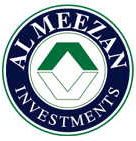| |
BY Babu Augustine
Capitalising on the strong demand for Islamic retail banking and investment banking products and services, the UAE's Islamic banks are in a hurry to expand their branch network across the country while a few of them are also planning to expand their reach across the Islamic world.
Dubai Islamic Bank (DIB) is currently working on a rapid expansion plan to take full advantage of the big growth in demand from the retail segment. The bank which nearly doubled its branch network during the past two years expects to have 53 branches by the end of 2007. Emirates Islamic Bank (EIB), which had a dozen branches in the beginning of this year has 18 branches currently and expects to cross 20 in the first quarter of 2007.
Sharjah Islamic Bank (SIB), which nearly doubled its branch network to 17 this year, is planning to open branches outside UAE. While Middle East still offers growth opportunities, analysts said there is big potential for growth in countries such as Indonesia, Bangladesh, India, and countries from North Africa and Central Asia which have significant Muslim population. Commenting on the overseas expansion plans Mohamed A. Abdalla, chief executive officer of SIB, said the bank is mulling overseas foray to get foothold in new markets that have growing demand for Shariah compliant banking services and products.
After its conversion into an Islamic institution about two years ago, SIB has been focusing its attention on the high growth retail Islamic banking products. Setting up a retail banking group is one of several projects that followed a major overhaul of all its operations.
The bank currently has several innovative Islamic finance products including a Haj and Umrah scheme called 'Labbayk', and 'Shahadati' — specially-designed product to meet educational needs.
Analysts expect that at the current rate of expansion, in the next 8 to 10 years, Islamic banking network in the UAE will outpace conventional banks. Currently there are six full-fledged Islamic banks with more than 100 branches across the country. A new bank, the Dh4 billion Noor Islamic Bank will start operations next year.
With the growing popularity of Islamic products and services, Islamic banks are adopting the latest technology platforms and delivery channels to attract and retain customers. DIB has recently reported a big increase in the number of customers migrating to its electronic channels such as Internet, telephone and mobile banking services. The bank claims that more than 50 per cent of its customers use banking services through electronic channels. To increase the share of electronic banking customers, DIB has recently signed a contract to buy 97 of the latest self-service terminals. To attract more retail business DIB has made significant enhancements their product and service portfolio. These include products such as Al Islami Personal Finance, Al Islami Credit Card and Al Islami Auto Finance, in addition to a growing range of investment funds. “Islamic banking products have a strong retail appeal, and greater customer loyalty than conventional banking products. For the banks themselves the availability of Islamic investment funds in the marketplace is a major added attraction,’ said an analyst.
To take advantage of the growing demand for Islamic products and services, many conventional banks have introduced strategies such as opening Islamic windows or starting fully dedicated Islamic finance companies. A few local banks such as Mashreqbank, RAKBank, First Gulf Bank, Union National Bank and Commercial Bank International (CBI) have either started or announced plans to open Islamic finance arms. Most foreign banks operating in the country are also eyeing Islamic opportunities.
The rapid expansion of Islamic banking in the country has resulted in acute shortage of qualified Islamic banking personnel in operations, accounting and compliance. According to a recent study by AT Kearney, GCC's Islamic banking sector will need to fill up to 30,000 new jobs over the next decade. Islamic banking is forecast to grow at rates of between 15 and 20 per cent, with Shariah-compliant banks expected to threaten conventional bank's market share.
With the entry of new Islamic finance companies topics such as securitisation of Shariah compliant asset-backed mortgages, and the pricing of home financing with floating rates are being actively considered as alternatives conventional financing options. The entry of this new breed of Islamic finance companies and the fast expanding Islamic banking networks are are expected to give a tough competition to most conventional banking products. |







